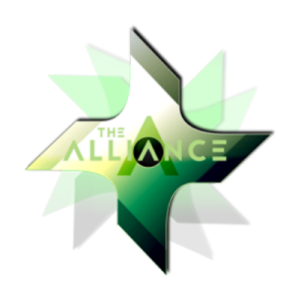
The continuity of dialogue and interface and stake in the system . . . Let's talk about that for this kind of platform.
Decentralized politics . . .
Most incompatibles aren't really incompatible.
(I've said that before, right?)
``Think as a community first'', says @vishalsingh4997 in a recent post. Agreed.
@vishalsingh4997 is right. Blatant bootlicking and nongenuine signaling is the next largest problem on the platform after what is effectively the potential for censorship with stake weighted voting and flagging. And so it's a bigger problem even than small accounts being at this time unable to earn much regardless of content they produce and the effect that has on active users compared to registered accounts.
Strategy and principles should be be combined to get one positive result building on the previous positive result, instead of futile bickering, inevitable misunderstandings, and the occasional personal conflict.
Because growth and improvement is achieved by passing threshold after threshold. Not by the precise quantitative position of a random walk that is all the same, however much it rose, still below the same threshold.
Passing thresholds means new dimensions for users. But for those to open up, users must get there by thinking as communities.
Uncoordinated random walks typically cancel out.
They most probably don't achieve very much.
It's thermodynamics. And the basis of thermodynamics.
Yet community efforts should remain free and decentralized and nobody should be required to exactly agree with a single position. Or goal. (Because it won't ever really happen, first of all. And then also because it shouldn't happen.)
Every individual brings their own ideas and healthy variation to the communities which they join.
They should only agree with the visions of those communities — which are more open ended than any set of goals.
Then individuals can productively work together, and make positive things happen. Decentralized politics, decentralized communities . . .
So what do we want?
We want a self improving platform. One that goes somewhere we might want to go — if we knew we could get there.
That rather than a platform which stagnates. Or that rather than a platform which declines and where the bottom eventually drops out. We'd like the opposite of that.
``Flags should only be used in the cases of violation of NAP such as Plagiarism, spam, doxxing, attacks on groups/organisations/ individuals that are not backed by any information or analysis, spreading misinformation that are objectively verifiable to be false etc'', writes @vimukthi. Agreed.
Some people here social media on a decentralized blockchain, Steem and front ends like Steemit, like 4chan or reddit: — ``I like apples you like oranges? And you never upvoted my cat post. Ya don't like cats? Wat fucker? Flaggd you, lolz. Haha. Motherfucker. Hehehe. Yeah.''
That's especially toxic on a permanently archived and monetized platform. It foments unnecessary conflict and internet warrior politics based on nothing more than incompatible personalities. Usually they are personalities talking past each other.
Only genuine community building can easily deal with that however.
In the meantime the various weird and aggressive and pointless flagging games practiced by some of the other large users open up the door to censorship by paid activists in the future. They set a precedent. It's not a good one.
I told Ned: whenever anybody whose time is valuable and who'd be an asset to the community is shown this site, almost always what happens is they browse for a few minutes on their phone. And then they ask me why I suggested what I suggested. What do I see that's so excellent?
My answer is potential. I see potential. Vast potential. But for most people potential is not enough. They don't care about potential. Most people are instrumental thinkers.
They want to see how they can use the product now to further their current goals, not change their goals as new things come along, and such people need working, viable, impressive demos, in their hands. If it satisfies their current goals, they might consider using it and going where else it leads.
Many users think Steem is capitalism or some kind of model of it. Not really.
They often confuse what our friends at the Mises Institute, and Herbert Spencer long before, have correctly called "vulgar" capitalism, with capitalism itself. Which is to say they falsely assume anything that occurs without "obvious" violence involved is the free market. It's a fallacy.
(That's not to say capitalism is magic and by itself is going to solve problems. It's not a means to nirvana. What capitalism does is it provides a means to challenge vested interests. No more no less. Breaking monopolies. Makes them hard to maintain. That's a lot and a little, depending whom you ask. It generates a few feedbacks around this. It's not magic, and it requires genuine communities and interactions and norms to broaden the time horizon to work well and generate real wealth (Mancur OLSON, Power and prosperity outgrowing communist and capitalist dictatorships, New York: Basic Books, 2000).)
Crony capitalism, organized crime, fascism, socialism called capitalism, etc, are not capitalism. The map is not the territory. The map may not even be similar to the territory. Especially if the map is mostly wrong.
If prices are regulated, or interfered with, if the general mass of consumers does not have sovereignty, and decide little which producers gets paid, that is socialism. If there's a probability of violence in case a consumer buys one product instead of another, and therefore buys the product he's coerced into ultimately buying, and that at the price given, you can't call the result capitalism and the price valid just because, in the end, the product was in fact purchased and nobody was hurt.
A social network is a constructed system, the rewards are not those on free market. Like in central planning, they're programmed. You have model risk. You might program the wrong rules, anticipating their outcomes incorrectly, and they lead to the wrong fixed point.
``You should accept the the good and the bad together because it works better that way.''
No. Principles matter. Because results matter. Absolutely.
Wrong principles, bad results.
Life is not a game. Because results matter. Therefore principles matter absolutely.
The idea that the system and life itself is just a game and should not be taken seriously by users in inappropriate therefore.
We have few excuses. Better rules and technical features and better, more genuine communities and community related thinking is needed to supplement the rules. That's how things work in the broader world. Already cited OLSON to this effect.
Organization and decentralization are not incompatibles. Let get things moving. And make things better and not worse.
The platform has potential. Guess what? Potential needs to be realized.
The mechanics of organization . . .
Organization is very important to decentralized blockchains.
Can you say why? What is the intimate connection genuine organization has with this technology?
In the past, one had to cover significant costs to organize.
But decentralized blockchain has changed all of that. Decentralized blockchains basically pay people to organize. That means communities can be far stronger and grow faster. As I've written before, much of macroeconomic value comes from organization of individual actors.
Imagine a boulder. And then imagine this boulder at the bottom of an incline.
If a thousand men take turns pushing the boulder up a hill, they can put up on the hill one boulder a week, if that. I requires quite a lot of effort from each person to move this boulder up there. That effort could be used elsewhere.
But what if ten men got together to roll the boulder up the hill? It goes up pretty quickly. Less effort is wasted merely this one process. Furthermore, in one day, for the same reason, these ten men can put a hundred boulders up the hill each day. And have plenty of time left over to grab breakfast, lunch, and dinner.
Guess what? Ten men together have the productivity, in the same activity, even without any differences in talent, hundreds of times greater than a thousand men unorganized. That's why an unorganized mass of men is not an army. (If you have a community with high participation, I think I'd like to be a part, if you'll have me.)
I think communities will grow faster on this and similar platforms — once they really get up and running. In a sense it's in the technology.
Why? Organization here is subsidized.
As more people positively interact, they can all do more. They read and comment and find value in each others conversations. Which feedback into stake. They are organized and can defend themselves against the inappropriate and abuse. Far more than individuals they could do alone. That's why it's social media. It's a mix of hot and cold media, in the terminology of Marshall McLuhan. The first true global village.
The internet and earlier mass communication technologies were not the global village. They were just the long road leading up to it, I now think.
I believe content people genuinely want to read will win in the end on this kind of platform. That will occur as rules and norms and communities all improve. And that will move such a platform ahead, increasing the value all get from it. Which is also its value.
Decentralized technology . . .
(Let's make it! We're makers, right?)
Any modern publishing system should be capable of being changed or updated while running it.
(Here's an interesting discussion to watch.)
It might be desirable for a way to exist for individual channels (~journal) to add features to their own channel without requiring browser extensions or anything like that, without requiring the whole system to go down, or individual servers and bots being set up, but just objects that live within the channel and can be added and removed in real time. To allow each journal to add a specific feature it wants. That would be a new value proposition. Compared to any existing platform.
The internet as a whole does not go down while part of it is changed. Or replaced. That allows add / removal. This assisted in rapid user adoption of internet technology; encouraged users to switch to it.

#creativity #science #writing #creative #technology #life #publishing
#thealliance #steemstem #isleofwrite #writersblock #blog
ABOUT ME
I'm a scientist who writes fantasy and science fiction under various names.
The magazines which I currently most recommend:
Magazine of Fantasy and Science Fiction
Compelling Science Fiction
Writers of the Future

PRACTICAL THINKING — LATEST — RECENT — POPULAR
FISHING — thinking about tools and technology
©2018 tibra. 
This work is licensed under a Creative Commons Attribution-ShareAlike 4.0 International License . . . . . . Text, illustrations, and images: @tibra. #thealliance symbol is by courtesy of @enginewitty.
